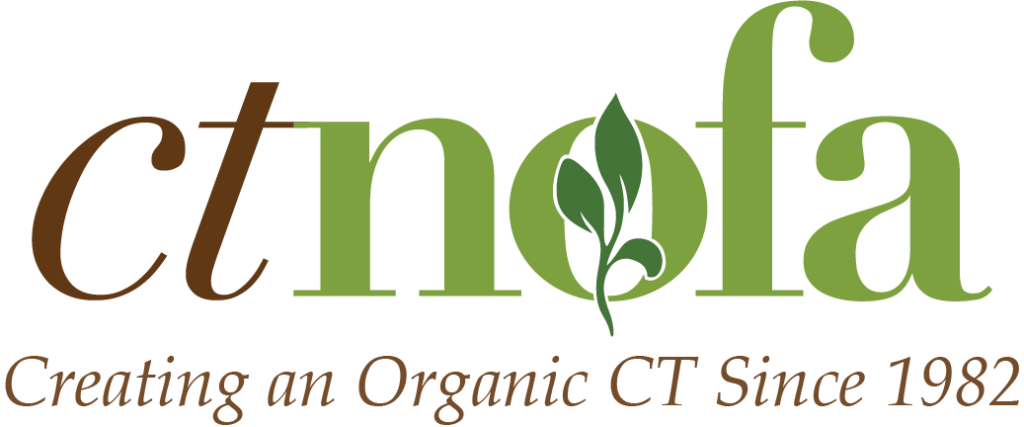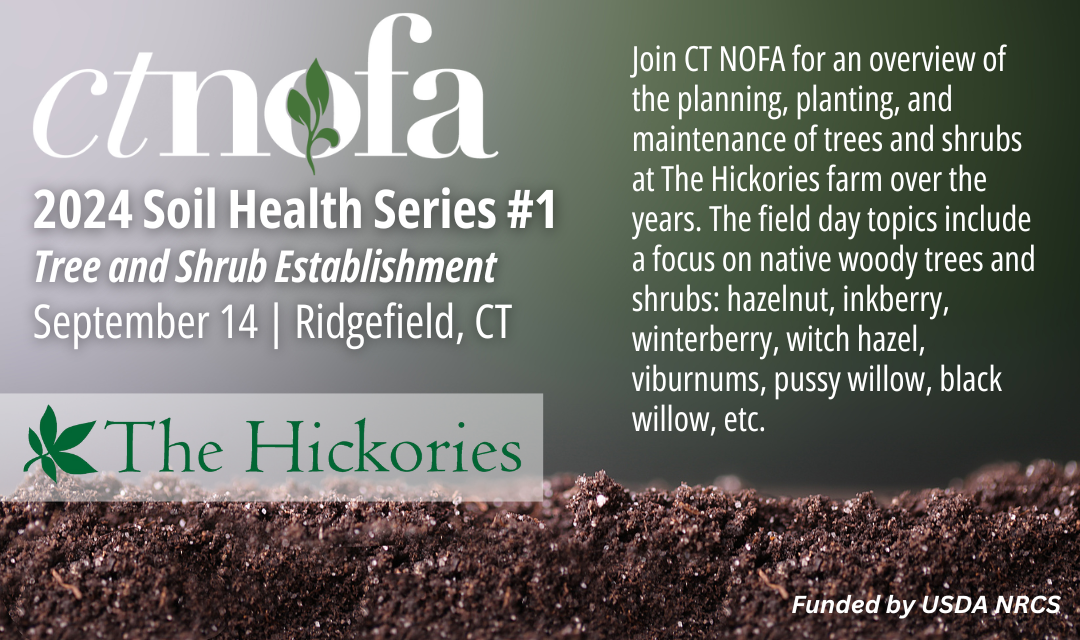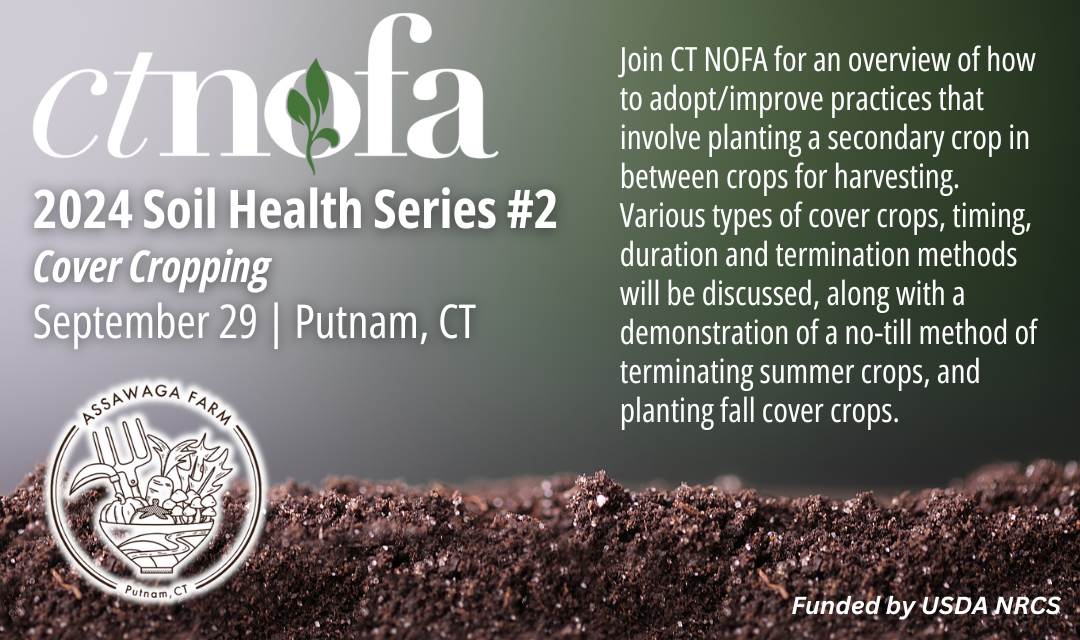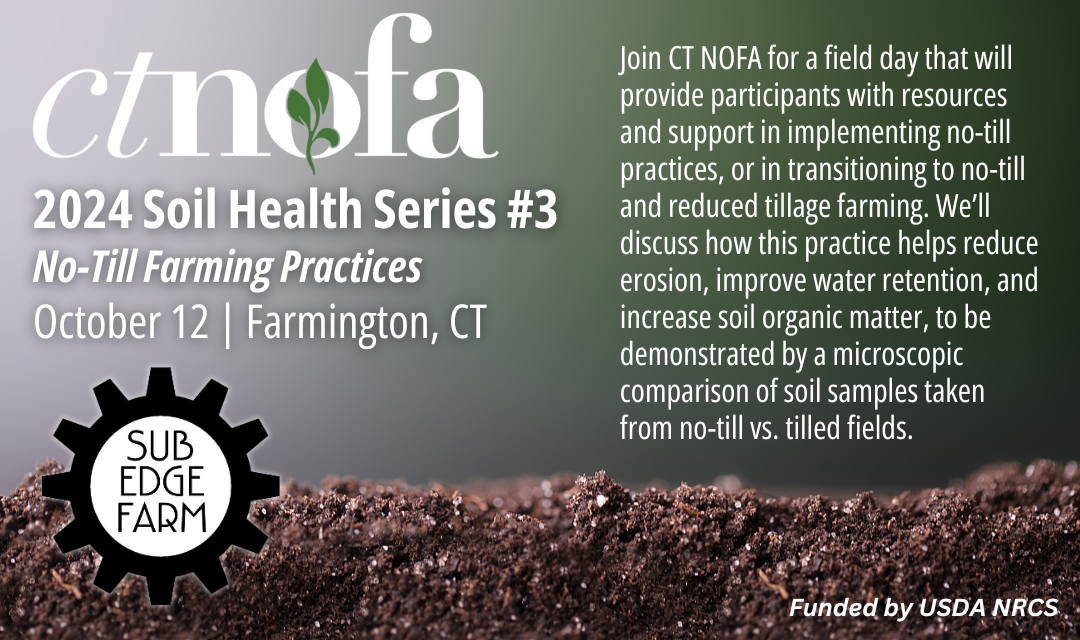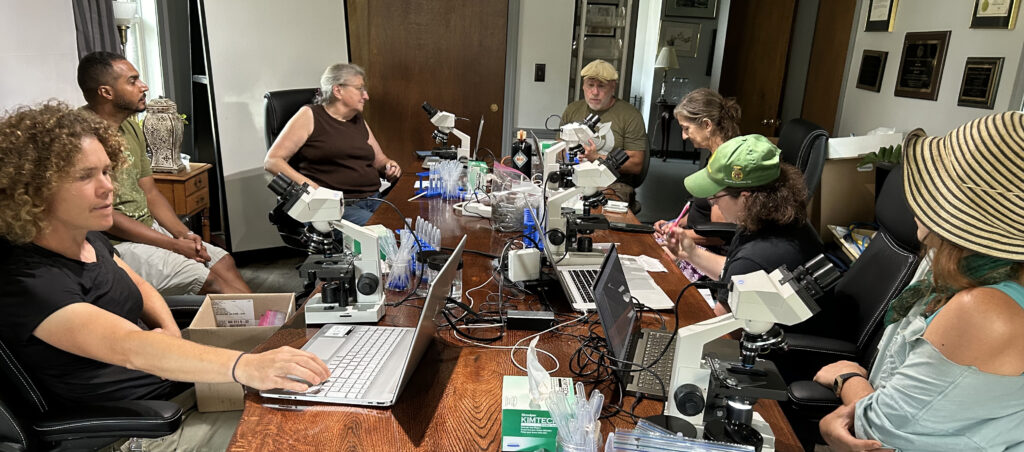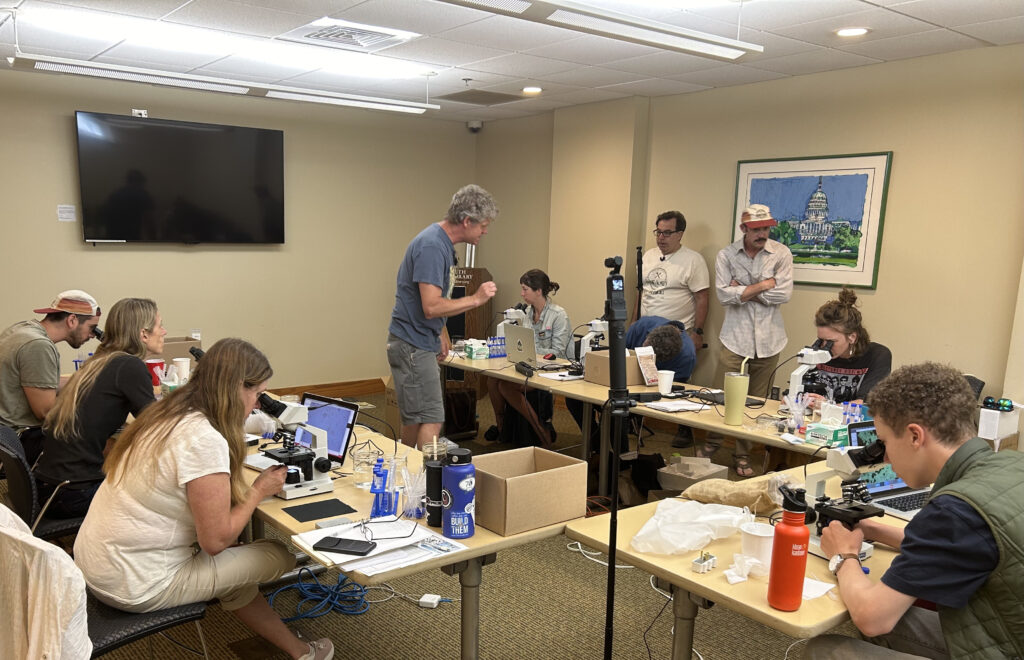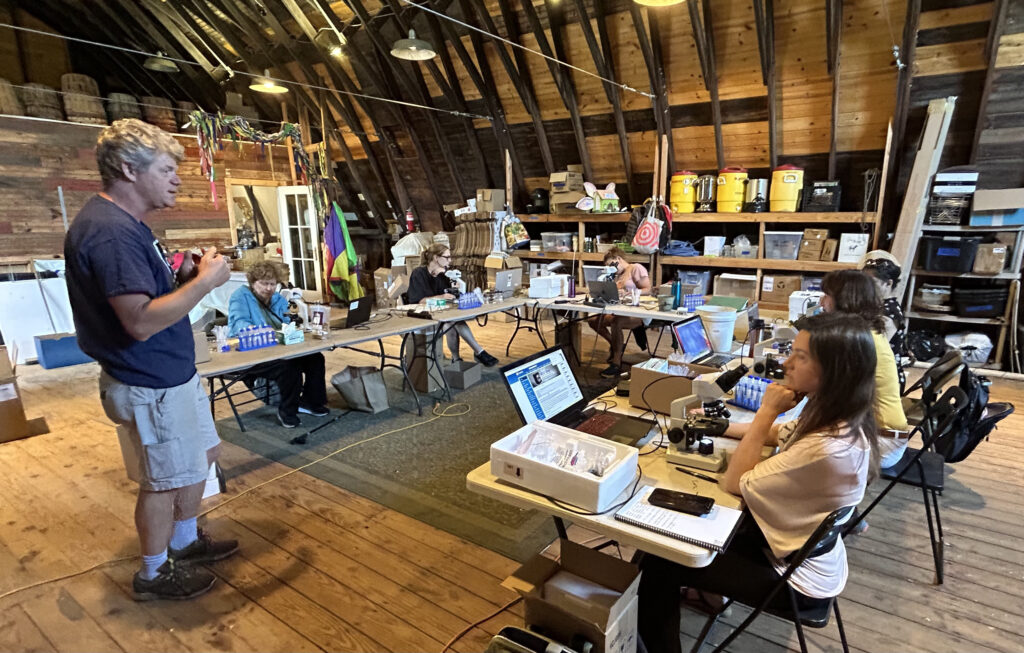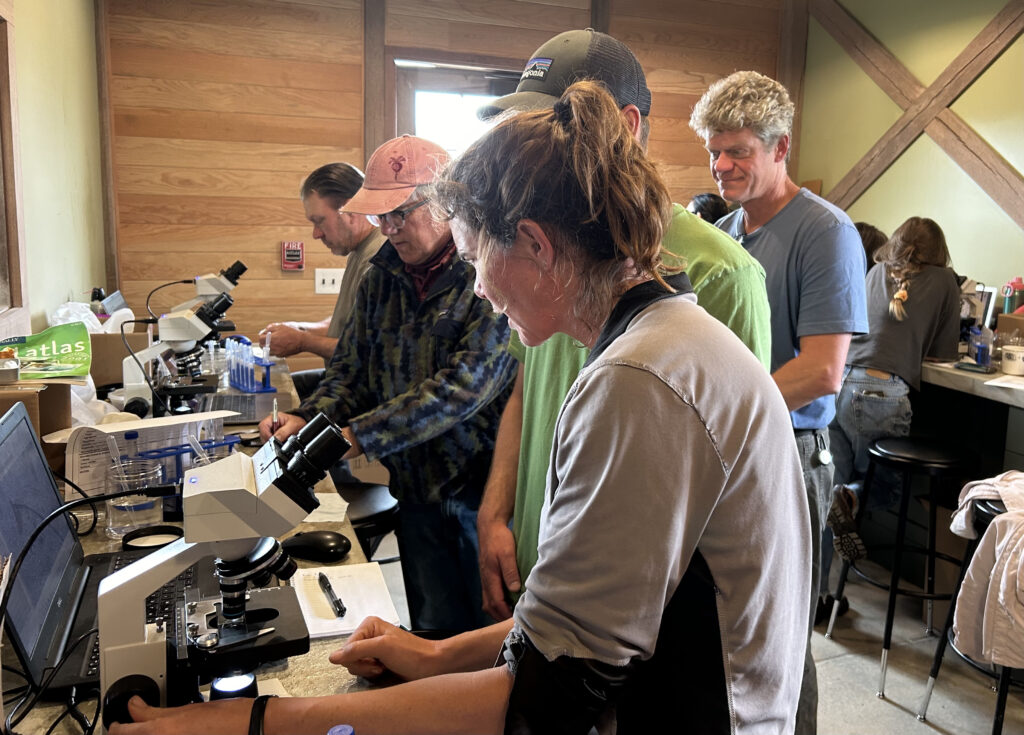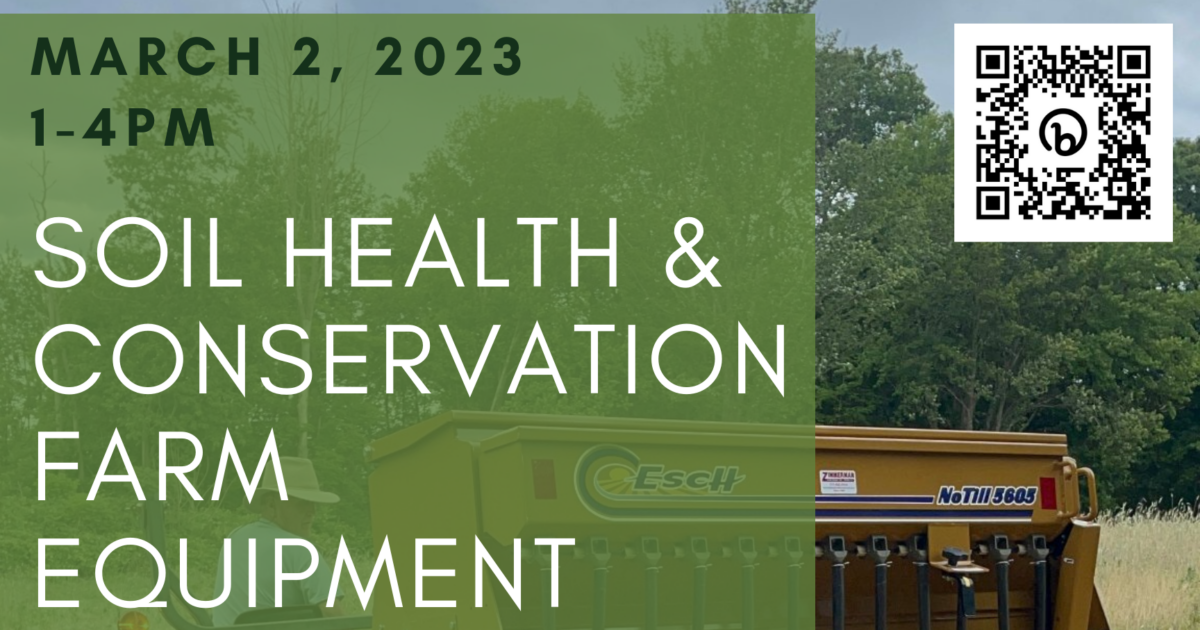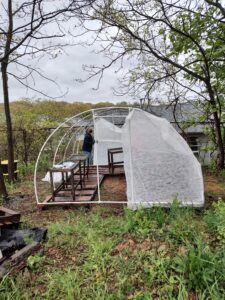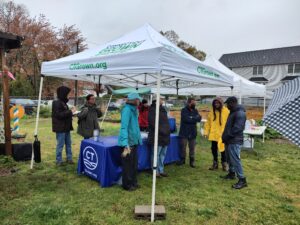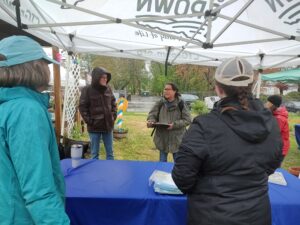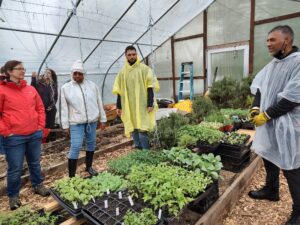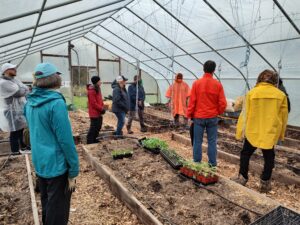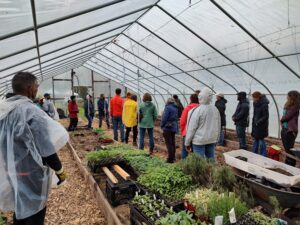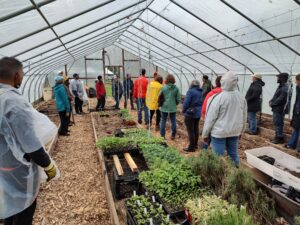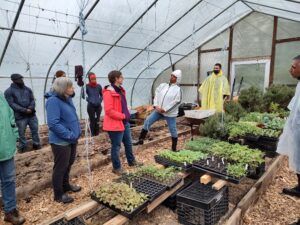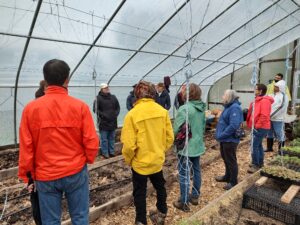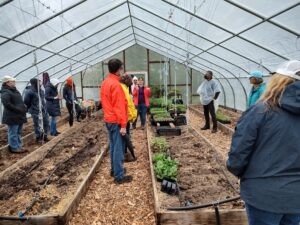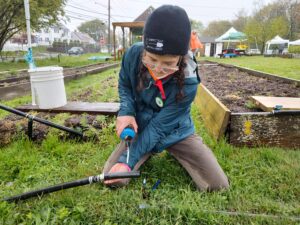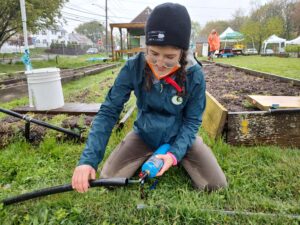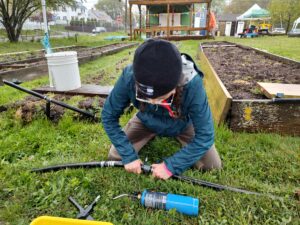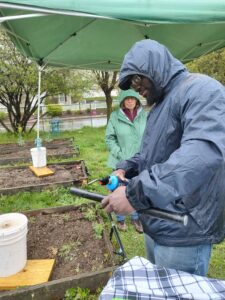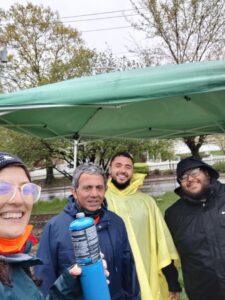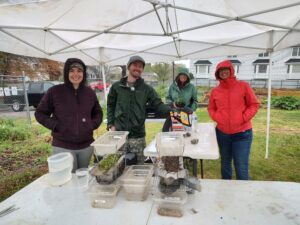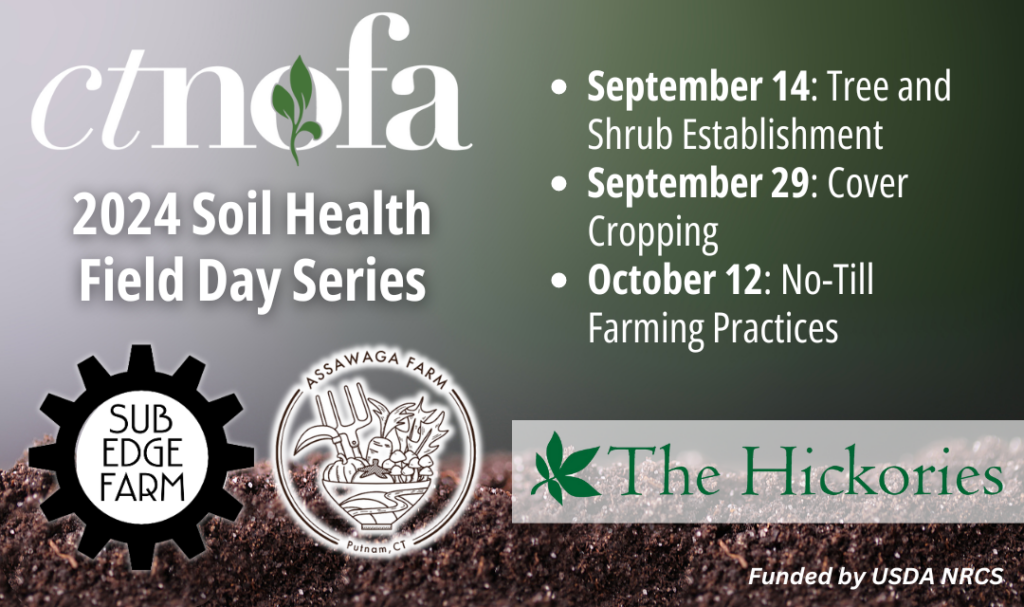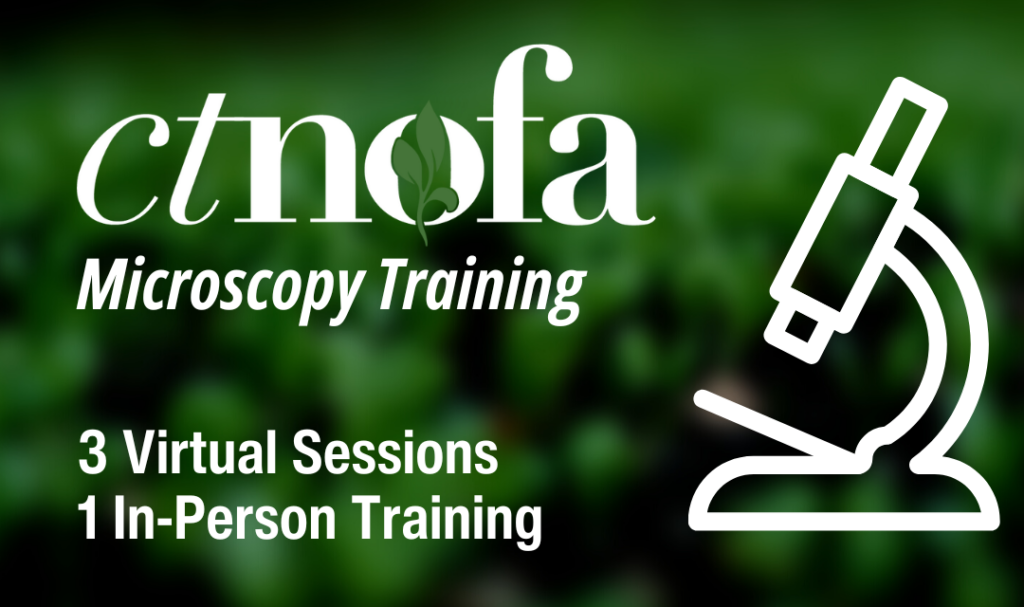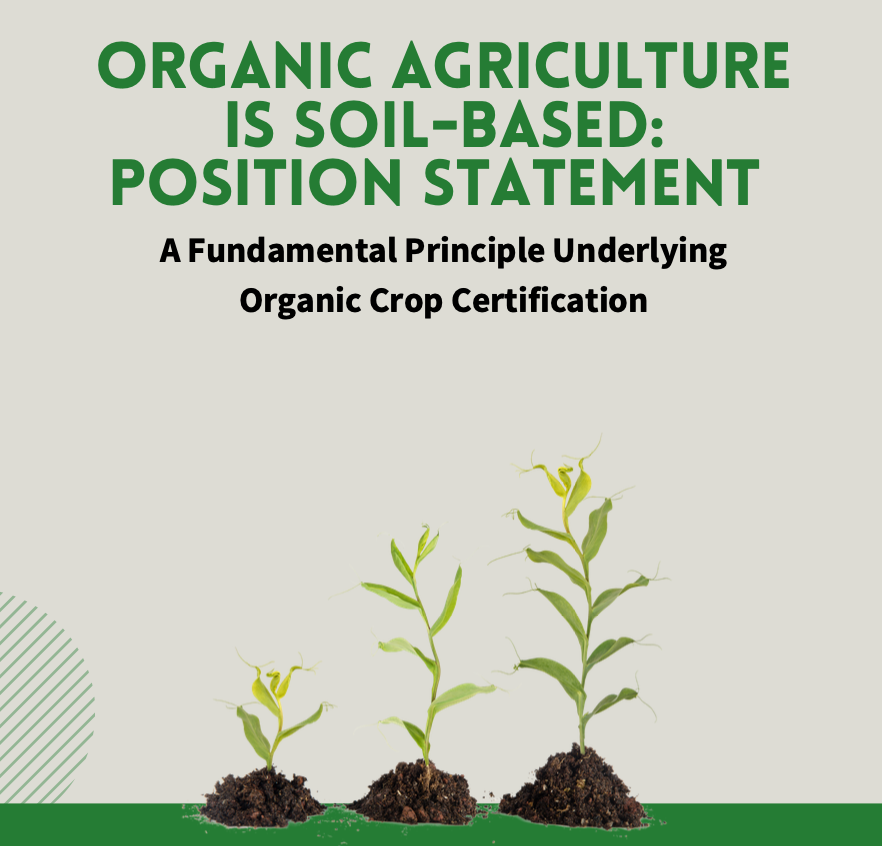
Soil Health
SOIL MICROSCOPY: ZOOMING IN ON HEALTHY SOIL
The Problem
Dangerous levels of carbon in Earth’s atmosphere derive not only from burning fossil fuels, but also from land use changes. Estimates suggest that agriculture is responsible for one quarter of greenhouse gas emissions globally.
Our Response
Farmers can and must be part of the solution to climate change. With changes to farming, ranching and gardening practices, we can reverse the global trend of soil carbon losses and instead return atmospheric carbon back to the soil. Building soil carbon and soil health increases the profitability and climate resilience of farms by making soils more drought and erosion resistant while reducing input needs. And, it is a climate change mitigation strategy that simultaneously increases the security of our watersheds, ecosystems and food systems.
2024 Soil Health Field Days
SEPTEMBER 14
Join CT NOFA for a hands-on workshop on establishing native trees and shrubs on farmland and properties throughout Connecticut. We’ll take a look at planning, planting, and maintenance of trees and shrubs at The Hickories farm over the years. Demonstrations will include site selection, soil preparation, and sourcing of appropriate plant material for specific locations.
The workshop includes guidance and support from experienced growers. Field day topic coverage will focus on native woody trees and shrubs; hazelnut, inkberry, winterberry, witch hazel, viburnums, pussy willow, and black willow, as well as ecotypic pollinators.
SEPTEMBER 29
Join CT NOFA for an overview of how to adopt/improve practices that involve planting a secondary crop in between crops for harvesting. Yoko Takemura and Alex Carpenter, farmers and founders of Assawaga Farm, will show several methods of working with cover crops on a small farm. Yoko will share her research and planting plans, which have proven successful in improving the health of their soil. Various types of cover crops, timing, duration and termination methods will be discussed, along with a demonstration of a no-till method of terminating summer crops, and planting fall cover crops.
OCTOBER 12
Join CT NOFA for a field day that will provide participants with resources and support in implementing no-till practices, or in transitioning to no-till and reduced tillage farming. This field day will include examples of no-till equipment, how they work, and how/when to use them. We’ll discuss how this climate smart practice helps reduce erosion, improve water retention, and increase soil organic matter, to be demonstrated by a microscopic comparison of soil samples taken from no-till vs. tilled fields, contrasting the bacteria/fungi ratio and microbial life differences between the two.
2024 Microscopy Training
CT NOFA is offering microscopy training in 2024. Participants will view various soils and composts, looking at the different soil structures and the microbes that thrive in healthy soil. Demonstrations include how to prepare a slide for viewing, what you might find and how to evaluate your findings. Participants will be trained to analyze the following:
- Bacteria : Fungi ratios – what they mean and why they’re important
- Aggregate structure in soil/compost
- Bacteria numbers and diversity
- Quality of fungi and what that means for your soil
- Predators – identify and quantify both aerobic and anaerobic microbes
- Compost tea and extracts – microbial populations that exist in real time
Throughout the training we will discuss ways to create healthy, living soil using regenerative agriculture techniques. At the completion of the training you will be ready to use your microscope to evaluate soil and compost, with the ability to store the information in written and visual form, to share, and compare with future samples.
Training includes:
- OMAX Digital Compound Microscope (plus slides, slip covers, pipettes, test-tubes, etc.)
- 3 Live Online Training Sessions (1.5 hours, each)
- 3 hour In-Person training (3 students per instructor)
- Virtual support up to 3 months after course, for any questions/clarifications
- Virtual tutorials (short videos available as reference material after course completion)
2024 Microscopy Training Interest Form
CT NOFA expects to offer additional microscopy trainings in 2024. Please fill out the following form to indicate your interest and we'll get in touch with you as soon as we have more information about forthcoming dates and locations.
Please direct questions to Monique Bosch.
Microscopy Summer Sessions In Action!
Microscopy Testimonials
For me it was a refresher, but I couldn’t have started using a microscope again without this training. So valuable to be able to create a slide that shows the life in the soil, and how to identify the microbes that make up the soil food web. I teach about this all the time when I give presentations on soils to different groups.
Cynthia Rabinowitz (Executive Director, Northwest Conservation District)
In May of 2023, the NOFA-NY education team had the great privilege to participate in soil microscopy training with Monique Bosch through CT-NOFA. The virtual training time let us get familiar with microscopes, learn to identify aggregates, fungal hyphae, nematodes, and some soil structure basics. The in-person training at Bard College was incredible! We found our own soil samples and analyzed them with students from the college, allowing us to test our teaching skills and gain confidence. I highly recommend Monique and this program. I have been able to work with farmers and gardeners now to look at their soil structures and teach them about what they see.
Samantha (NOFA-NY)
At Assawaga Farm, our microscope is an indispensable tool for maintaining and improving our soil's health. We use it to assess the biology of many things on the farm including potting soil, compost, teas, as well as general soil tests from our fields, and it allows us a better understanding of what the soil and crops need to be healthy, productive, and sustainable. Looking at our farm through a microscope opens up a whole new perspective that we use to inform our decisions.
Alex Carpenter (Assawaga Farm, Putnam, CT)
2023 WORKSHOPS
In partnership with UConn Extension, this event included an exhibition of low and no-till farm equipment, methods, and results for all scales of farming. Workshops covered best methods for no-till seeding, crimping, etc., along with cover crop implementation for soil health improvement.
USDA NRCS, CTRCD, and CT NOFA met at Green Village Initiative’s Reservoir Community Farm in Bridgeport to educate about support for urban farms and organizations. Leaders in the industry were on hand to explain ways to get funding for urban farm infrastructure.
2022 WORKSHOPS
permaculture with sefra alexandra
September 2nd, 2022
Soil Health at Hillandale Farm
October 27th, 2022
2021 WORKSHOPS
Sub-Edge Farm Field Day
May 25th, 2021
Assawaga Farm Field Day
September 20th, 2021
2020 WORKSHOPS
Assawaga Farm Field Day
May 30th, 2020
Massaro Community Farm Field Day
September 29th, 2020
